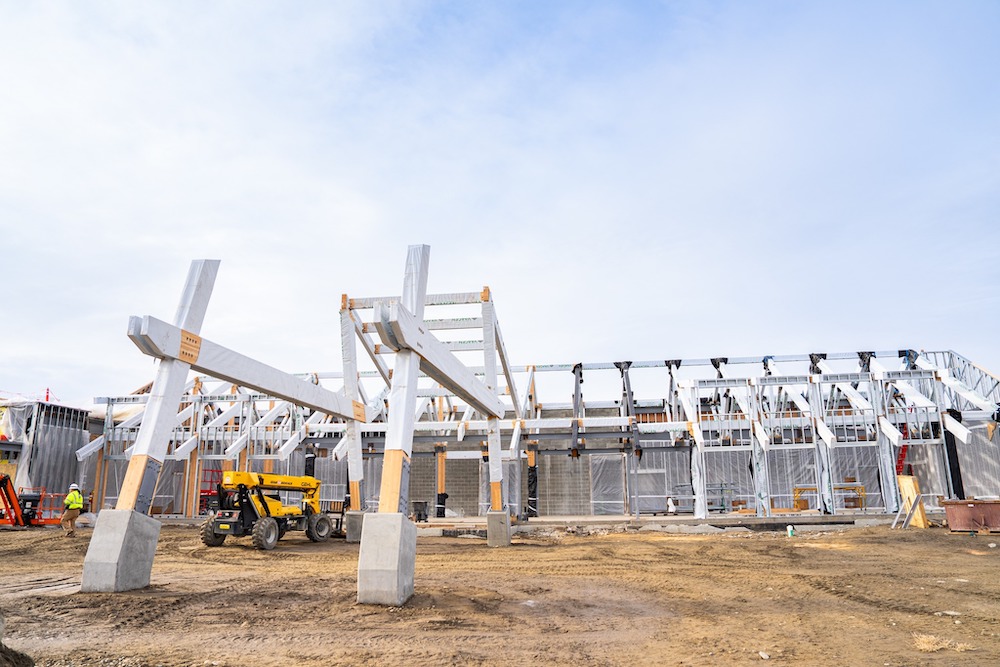
- Details
- By Brian Edwards
- Finance
Native American Bank has allocated $50 million in New Markets Tax Credits to fund five community development projects across Indian Country, with a focus on healthcare facilities and childcare centers serving tribal communities.
The Denver-based bank received the tax credit allocation in 2022 through the U.S. Department of Treasury's Community Development Financial Institution (CDFI) Fund. The projects span multiple states and will serve both reservation and urban Native populations.
The largest allocation, $15 million, supports the Confederated Tribes of the Colville Reservation's new healthcare facility in Omak, Wash. The $35.4 million project will create a 33,657-square-foot center offering medical exams, dentistry, physical therapy and behavioral health services designed to address cultural needs.
In Arizona, the Navajo Tribal Utility Authority received $7.5 million toward a $50 million wastewater treatment project in Kayenta, a tourist destination within the Navajo Nation. The infrastructure upgrades will serve local families while supporting economic development in the community.
Two significant childcare projects received funding. Santo Domingo Pueblo in New Mexico secured $9 million for the Kewa Childcare and Family Engagement Center, a $17.8 million facility that will serve approximately 100 children daily with programming that includes language instruction with tribal elders and cultural education.
The Winnebago Tribe of Nebraska obtained $10 million for a childcare and workforce development center in Winnebago. The $20 million project includes an additional $10 million allocation from the Chickasaw Nation Community Development Endeavor and will provide cultural activities and technology access for children while offering job training for parents.
The Native American Community Clinic in the Twin Cities received $8.5 million toward a $26.6 million medical building serving urban Native populations. The 39,000-square-foot facility will combine traditional healthcare services with cultural healing practices and include separately financed affordable housing units.
"Each of these community projects will support thriving American Indian families—for example, with culturally competent healthcare; childcare that provides Indigenous language activities; clean water; good jobs; and access to quality healthcare," Joel Smith, president of Native American Bank's Community Development Division, said in a statement.
Native American Bank operates as a certified Native CDFI and the first national American Indian-owned community development bank. The institution focuses exclusively on Native-owned and Native-led projects across tribal lands and urban Native communities.
The New Markets Tax Credit program provides federal tax incentives to encourage private investment in low-income communities through a competitive allocation process involving more than 200 Community Development Entities nationwide.
Despite the program's broad reach, tribal communities remain significantly underserved by New Markets Tax Credits. Federal Reserve Bank of Minneapolis research found that "for every $100 in NMTC investments involving non-tribal entities, only $1 is being directed for investments with tribal entities—even though a disproportionately high share of census tracts eligible for NMTC investment are located in tribal areas," according to previous Tribal Business News reporting. The study found that while tribal participation has increased from 0.3 percent in the program's first decade to 2.55 percent in 2019, only 36 of the 347 tribes in the lower 48 states have received any NMTC funding.
The disparity has led to calls for policy changes, leading groups like the Native CDFI Network and members of Congress to float the idea of creating a Native set-aside similar to the CDFI Fund's Native American CDFI Assistance (NACA) program. Applications for NMTCs are expensive and time-consuming, which has discouraged many Native CDFIs from applying given the historically low success rates for tribal projects.
Proposed federal legislation could address these disparities. The Tribal Tax and Investment Reform Act of 2025, introduced by Senators Catherine Cortez Masto and Lisa Murkowski, includes a $175 million annual tax credit set-aside for development in tribal communities through the New Markets Tax Credit program.
Attorney Telly J. Meier, a former director of the IRS's Office of Indian Tribal Governments, told Tribal Business News the provision would likely be utilized immediately due to high demand in Indian Country, though tribal advocates continue to push for any NMTC set-aside to go to Native-controlled community development entities rather than non-Native developers working in Native communities.
